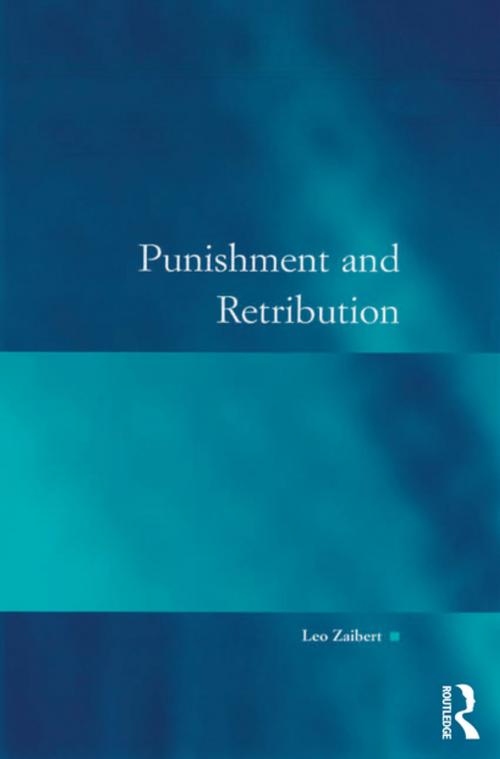| Author: | Leo Zaibert | ISBN: | 9781317073239 |
| Publisher: | Taylor and Francis | Publication: | April 15, 2016 |
| Imprint: | Routledge | Language: | English |
| Author: | Leo Zaibert |
| ISBN: | 9781317073239 |
| Publisher: | Taylor and Francis |
| Publication: | April 15, 2016 |
| Imprint: | Routledge |
| Language: | English |
Discussions of punishment typically assume that punishment is criminal punishment carried out by the State. Punishment is, however, a richer phenomenon and it occurs in many contexts. This book contains a general account of punishment which overcomes the difficulties of competing accounts. Recognizing punishment's manifoldness is valuable not merely in contributing to conceptual clarity, but in that this recognition sheds light on the complicated problem of punishment's justification. Insofar as they narrowly presuppose that punishment is criminal punishment, most apparent solutions to the tension between consequentialism and retributivism are rather unenlightening if we attempt to apply them in other contexts. Moreover, this presupposition has given rise to an unwieldy variety of accounts of retributivism which are less helpful in contexts other than criminal punishment. Treating punishment comprehensibly helps us to better understand how it differs from similar phenomena, and to carry on the discussion of its justification fruitfully.
Discussions of punishment typically assume that punishment is criminal punishment carried out by the State. Punishment is, however, a richer phenomenon and it occurs in many contexts. This book contains a general account of punishment which overcomes the difficulties of competing accounts. Recognizing punishment's manifoldness is valuable not merely in contributing to conceptual clarity, but in that this recognition sheds light on the complicated problem of punishment's justification. Insofar as they narrowly presuppose that punishment is criminal punishment, most apparent solutions to the tension between consequentialism and retributivism are rather unenlightening if we attempt to apply them in other contexts. Moreover, this presupposition has given rise to an unwieldy variety of accounts of retributivism which are less helpful in contexts other than criminal punishment. Treating punishment comprehensibly helps us to better understand how it differs from similar phenomena, and to carry on the discussion of its justification fruitfully.















